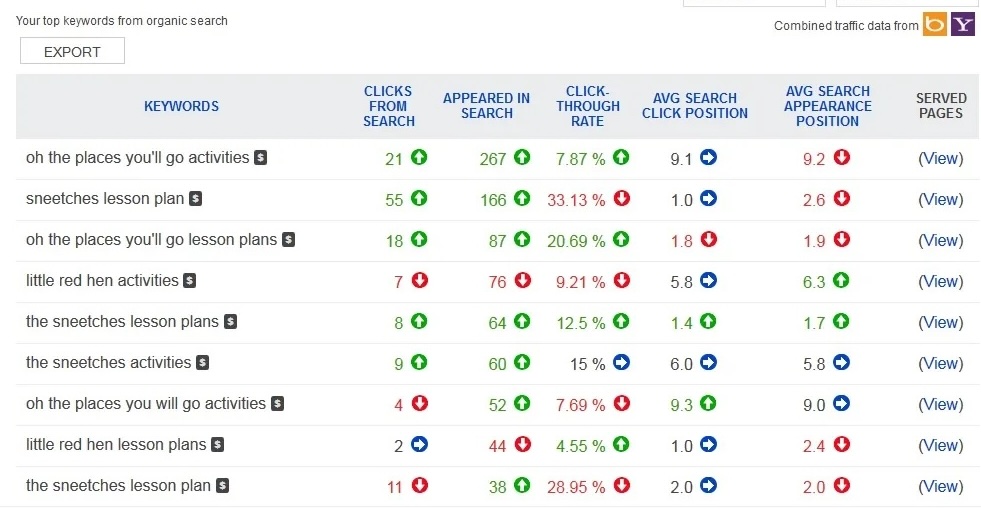Your cart is currently empty!

How’s that Keyword Performing?
Recently a client expressed concern about a particular keyword that had been bringing traffic to his website, but had slowed down. He was concerned about seeing his keyword performing sluggishly.
If you’ve faced the same issue, you might like to see how we approached it.
Question 1: Is the keyword really bringing less traffic than before?
Google is no longer showing us all the organic keyword data they used to show. Google Analytics used to show all the terms that brought visitors to the website via search, and now most of that data is not shown. You can see some information in Google Webmaster Tools and some in Jetpack Analytics, but there’s not enough data for us to be certain.
We can see which pages are receiving more or less traffic, which could in some cases give us a hint. Here again, however, there’s a lot of missing information: we don’t know for sure that the visitors searched with the keyword we have in mind for that pge. They could have searched with another term.
This client has paid search for that keyword, too, and there we saw a slight increase in traffic.
In sum, we can’t answer this question with confidence. If there had been a significant drop — enough to affect their business — we probably would have seen it. So before you worry too much about your keyword, consider why you think the traffic has fallen.
Question 2: Have rankings for the keyword fallen?
We checked the client’s average rankings for the keyword in question using Google Webmaster Tools and Bing Webmaster Tools. In both cases, the average placement was 1.4; searchers are seeing our client as the first or second option, so rankings are not an issue.
In the image at the top of this post, you can see Bing’s keyword report for our lab site, Freshplans. We can see that our rankings for this site have fallen for keywords related to a particular children’s book. If we saw this for our client, we would have know what to work on.
Since the client’s rankings for that keyword have stayed excellent, though, that is not the source of the problem.
Question 3: Have searches for the keyword decreased overall?
Since the client isn’t seeing a precipitous drop in traffic for this keyword and their rankings haven’t fallen, the next question is whether people just aren’t searching for that term as much any more.
We asked Google Trends, a tool that shows details of the amount of search volume specific terms receive. It gives data for time and place and allows us to compare various keywords. It also shows keywords that are becoming more important.
We can readily see that the keyword our client is concerned about has very little search volume. Even if our client is #1 for all searchers for this term, there’s not enough search going on to ensure that it will bring in steady traffic. Fluctuations in the amount of business the term brings are to be expected.
What next?
Each step in the process can provide actionable data. In this case, our best plan is probably to seek out other terms our client’s customers are using to look for the services he offers. We were able to identify a few that are increasing in volume rather than decreasing, so that was the most important takeaway in this case.
What could we have done without analytics information? We could still have used Google Trends, but without answering the first two questions, it would have been less useful in providing strategic direction. If you don’t have analytics installed at your website, or you don’t know what to do with the analytics data you’re capturing, contact us. We’re happy to help.

Leave a Reply